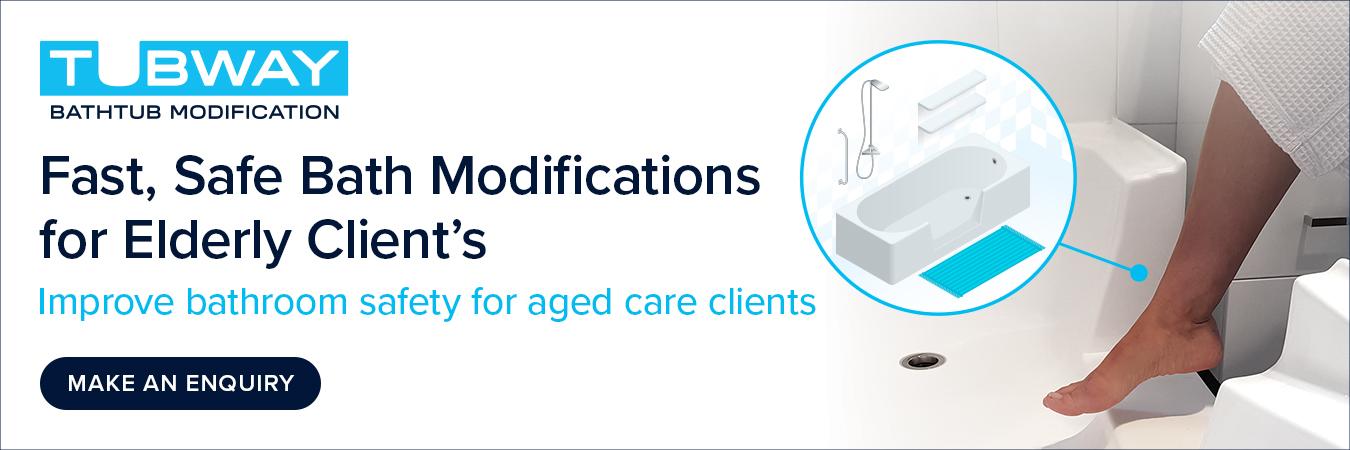
Published: Monday 28 April 2025
Indicative Pricing for Support at Home services
As you will be aware, DOHAC has released a fact sheet that includes indicative price ranges for most Support at Home services. OTA understand the concerns that this development has raised for members working in aged care, and the difficulties it may present for sustainability of businesses.
These indicative price ranges reflect what Home Care Package (HCP) providers have reported that they intend to charge when the Support at Home program commences from 1 July 2025. From this date providers will continue to set their own prices for services as they have done for the Home Care Packages (HCP) Program. However, from 1 July 2026, Australian Government price caps will apply.
The Department advises that the indicative price ranges have been published to provide market-level information that will assist participants to understand how a provider’s pricing compares with other providers across the country.
OTA was very concerned by the range indicated for OTs and by the methodology for determining the indicative price range. The indicative prices were collected through a survey of HCP providers in February 2025, with approximately a third of all HCP providers responding to the survey. However, neither OTA nor other allied health professions were consulted in the process. We have raised these concerns with DOHAC and will continue to advocate on behalf of members in the lead up to the introduction of the unit price and future caps.
The indicative range for OTs is:
- $174 per hour at the lower end of the range,
- to $220 per hour at the upper end of the range.
- The national median price is $200 per hour.
OTA is concerned that these prices do not reflect the costs incurred by OTs who provide services as sub-contractors. The unit price is for face-to-face services only, with the expectation that the cost will incorporate the non face-to-face expenses involved in delivering a service, including travel, report writing etc.
Setting Prices for 1 July 2025 Start Date
We understand that many members are being asked by providers to set their prices for the 1 July start date.
OTA encourages clinicians operating in this space to be aware of the following when determining their unit pricing:
The indicative pricing is not a price cap; however, providers will be encouraged to provide evidence should they charge significantly outside of the suggested ranges.
Price caps will be introduced from 1 July 2026 – these prices are being built based on data obtained and analysed by the Independent Hospital and Aged Care Pricing Authority. They have indicated in their last meeting with us that they will continue to monitor the prices being charged for services over the coming year to inform their pricing for 2026, particularly for regional and remote locations.
Clinical care is 100% funded by the federal government and there are provisions in the rules for no consumer contributions to this type of service (i.e. consumers cannot top up the costs like they do for Medicare or DVA services) with this category of services not subject to means testing.
Services delivered under Independence and Everyday Living categories will be subject to means testing.
In light of this we encourage members to:
- Thoroughly analyse your costs to deliver comprehensive care and gather this evidence to support the unit pricing you wish to charge.
- Negotiate your price with the providers you operate under and use the evidence for your pricing to support these negotiations.
- Consider developing service agreements with your providers before accepting new referrals so that all parties are in agreement on the terms and pricing for sub-contracting. **
Useful Resources
The following documents may be useful in gaining an understanding the changes and how they will be implemented:
Support at Home Program handbook – provides a brief summary of the Support at Home components.
Support at Home Manual – there is information in this manual that describes the structure of the new Support at Home Program, specifically the way in which older people are assessed for their needs, the categories for service deliver, the funding ranges that will be available based on assessed needs, the new short term funding pathways including the Restorative Care Pathway, the End of Life Pathway and the AT HM program.
Summary of indicative pricing – this provides details of what the pricing ranges for services available under the Support at Home Program for the first year July 2025 to July 2026.
Support at Home: Claims and Payments Business Rules Guidance – defines more clearly how providers are expected to bill in the Support at Home Program.
Consumer protections for Support at Home prices – fact sheet for providers
Consumer protections for Support at Home prices – fact sheet for participants
OTA recognises the confusion and frustration that members are experiencing as these new arrangements are disclosed and implemented. OTA will be monitoring the reforms as they unfold and will continue to work with AHPA and our allied health colleagues to advocate on the issues arising for our members.
Aged Care Reforms
With 1 July fast approaching, and with it the implementation of the new Aged Care Act 2024 (the Act) it has been a very busy past few months. Numerous tranches of rules to support the reforms under the Act (the Rules) have been rapidly released, and OTA have been working hard to review the Rules to understand the impacts that the new Act may have on policy and practice.
Since the announcement of the federal election, the Australian Government has been in care-taker mode, during which the government won’t make any major policy decisions that are likely to commit an incoming government, unless urgently required. However, preparation by the Department of Health and Aged Care (DOHAC) for the coming changes has not ceased. OTA has been actively advocating on the home modifications funding changes, as well as engaging with DOHAC and the Aged Care Quality and Safety Commission on provider registration requirements and the impact on OTs under the new regulatory model.
Due to the incomplete information included in the tranches of Aged Care Rules that have been released to date, OTA has been unable to fully understand the implications of the changes to the Support at Home program.
OTA will continue to keep members informed as DOHAC provides further information. We will be advocating for improved communication and clarity from DOHAC and we will continue advocating to ensure best outcomes for members and older people requiring aged care services.
We encourage you sign up to updates from DOHAC via the Ageing and Aged Care Engagement Hub.
Aged Care Rules
OTA has made several submissions on the Rules as they have been progressively released since late last year, as well as providing input to AHPA’s submissions on some of the Rules.
OTA was pleased to attend a meeting with DOHAC on 3 March 2025 to discuss our submission on the Aged Care Act Rules for the Residential Care Services List.
The meeting was productive with DOHAC responding to key issues raised in our submission, including inconsistencies in language, particularly around OT specific services and expertise. The discussion highlighted OTA’s concerns around the lack of specificity when referring to service provision with generic language like ‘health professionals’. OTA recommended specific wording that would ensure suitably qualified health professionals, including allied health professionals (AHPs), are identified and referred for service provision.
DOHAC advised that terminology and definitions would be addressed in the next version of the rules and acknowledged that the tranche-based approach to the release of the rules made it difficult to track how feedback is being addressed. DOHAC also responded to OTAs concerns about the restrictions placed on the provision of customised aids and motorised wheelchairs. DOHAC indicated that these matters were outside the scope of the current rules, but valued OTA’s input on these matters for future consideration.
OTA had identified several other issues in our submission including:
- the lack of recognition of the importance of multi-disciplinary and collaborative approaches in the service list,
- the apparent lack of focus in the service list on the provision of allied health to support wellbeing, safety and quality of life, which undermines the Act’s objectives of a person-centred and human-rights based sector, and
- the impact on the provision of occupational therapy services following the introduction of the mandatory care minutes in residential care, as reported by our members.
OTA remains concerned by other aspects of the Rules, most particularly the failure to ensure that the full scope of practice of OTs is included in their roles. We have expressed our concerns in several submissions that the Rules do not adequately reinforce the obligations of providers to ensure that residents receive the allied health services they require based on assessed need, nor that the role of AHPs is adequately defined to ensure that the health, wellbeing and independence of residents is supported and enhanced.
We are uncertain if these matters will be addressed in the final version of the Rules, and it does not appear that there will be an opportunity to provide feedback on the final version.. We will raise any continuing concerns with the Rules and their implementation with DOHAC.
The next stage of the rules – Stage 4a Rules – were released in March 2025. This release includes matters such as how places are allocated to providers under certain specialist aged care programs; provider responsibilities, such as the requirement to have a registered nurse on site 24/7; and accommodation payments. OTA contributed to AHPA’s submission on this release.
The Stage 4b Rules were released on 15 April, which cover the remaining rules, including entry into the aged care system and how places are allocated to people; accommodation costs including bonds and charges; and, regulation of the aged care system, including handling complaints. This is the final release of Rules before the implementation of the Aged Care Act. Information on the draft Stage 4b Rules is available here.
OTA’s submissions on the Aged Care Rules are available on the OTA website.
Clarification Regarding Registration Requirements and Fees for Aged Care Providers
OTA has participated in two meetings with the Aged Care Quality and Safety Commission on their consultation on cost recovery of fees for aged care providers, along with AHPA and other allied health profession peak bodies. The second meeting was arranged by the Commission in response to concerns that both OTA and AHPA members raised about the possibility of AHPs needing to register as providers and be subject to cost recovery fees for registration and auditing processes. The second meeting included a DOHAC representative.
We welcomed the assurances we received that OTs and AHPs will not be required to register as providers in the first phase of the introduction of the regulatory model, nor be subject to cost recovery fees. In this phase of the regulatory reform subcontractors will be considered Associate or ‘third-party providers’. Registered providers will be responsible for ensuring compliance with the Quality Standards on behalf of the AHPs that they employ in-house.
We remain concerned however, that from 1 July 2027, when the second phase of the regulatory reform process will be implemented, it may be possible for aged care recipients to engage more than one provider for their services. This creates the opportunity for AHPs to become providers in their own right, which will mean that they will be subject to registration requirements and cost recovery fees.
OTA is keen to hear from members who are thinking of registering as an aged care provider in future, because of the on-going changes in aged care. This information will assist us in our future advocacy on these matters. Please email policy@otaus.org.au if you are in this situation.
Concerns about the impacts of Regulatory Categories
OTA is concerned by the proposed regulatory system requirements for registered aged care providers to be registered under Category 4 to provide Allied Health supports, and Category 2 for Assistance Technology supports.
We hold significant concerns that there will be unintended barriers to care for older people because of this distinction between Category 4 and Category 2. Many older people referred to allied health services such as occupational therapy and speech pathology will be found to need AT at some point. These allied health services will have commenced with aged care providers registered under Category 4 (allied health). This risks significant disruption to care if the older person needs to subsequently find an alternate provider (registered under Category 2) mid-course of care, or worse, a likely restriction on them accessing the benefits of the required AT in order to remain with their existing provider.
It is unclear at this stage how the required clinical governance standards for the allied health wrap around supports provided under the AT category will be applied to providers registered under Category 2.
In addition, reimbursement requirements may pose a barrier to many providers registering under Category 2. Providers will be required to source and fund AT (and presumably the bundled allied health wrap around support under the AT funding tier) up-front before getting reimbursement from the government. Actual AT needs won’t be known until the comprehensive discipline assessment, which may result in an amended budget to be approved. This will possibly create a disincentive for some providers to register in Category 2 given this unknown effect on cash flow.
Furthermore, there is potential for further unintended consequences with aged care providers choosing not to register for Category 4 (Allied Health Services) if they can’t support the full clinical recommendations of the clinician (i.e. AT HM recommendations).
These issues may result in older people not being able to access OT and broader allied health services that they need to maintain and improve function, safety and wellbeing and help prevent falls, hospitalisations and even death. We are concerned that this counteracts the intent of the reforms, which is that older people will be able to age safely at home.
OTA will continue to raise these matters with DOHAC and the Aged Care Quality and Safety Commission, in collaboration with AHPA, to ensure the regulatory categories are monitored and that any negative impacts are addressed.
Continuing Advocacy on Home Modifications Cap
OTA has raised concerns about the new arrangements for funding for Assistive Technology and Home Modifications, and in particular the lifetime cap of $15,000 for Home Modifications, in several of our submissions to the Aged Care Rules.
This matter has been included in our Federal Election Playbook, and we are calling for the Government to reconsider the approach to AT- HM funding, and for the release of AT-HM funds to be based on assessed need.
On Monday 31 March OTA met with the office of Anika Wells, Minister for Aged Care, to discuss the aged care reforms, with a particular focus on our concerns about the cap on Home Modifications and the unintended consequences that may arise from this. The discussion centred around the need for flexibility to seek additional funding to support people to age safely at home, and how the changing and ongoing needs of older people can be met under reforms to aged care. The Minister’s Aged Care Advisor, Anna Haigh, assured us that the Minister is aware of these concerns and the impacts of the changes will be monitored following the introduction of the Act.
However, as part of our ongoing advocacy on this issue, we will write again to DOHAC, following reports that they have heard from many key stakeholders that the proposed approach is likely to have disastrous outcomes. We remain hopeful that continued pressure will result in a reconsideration of the cap and the approach to funding for HM.
Operational Guidelines for AT HM
It is important to note that while clinical care provided by OTs is 100% funded by the federal government, provision of assistive technology and home modifications will be under the Independence Category, and therefore subject to consumer contributions.
OTA is still waiting for the full details of how the means testing will be applied, as Appendix 3 of the Support at Home Program Manual, which will provide guidelines on the AT HM program, is not yet included in the Manual, with a notation that it will be available from 1 July 2025.
We have raised our concerns that this means full details will not be available to providers and OTs involved in the provision of AT HM until the commencement of the new Aged Care Act.




